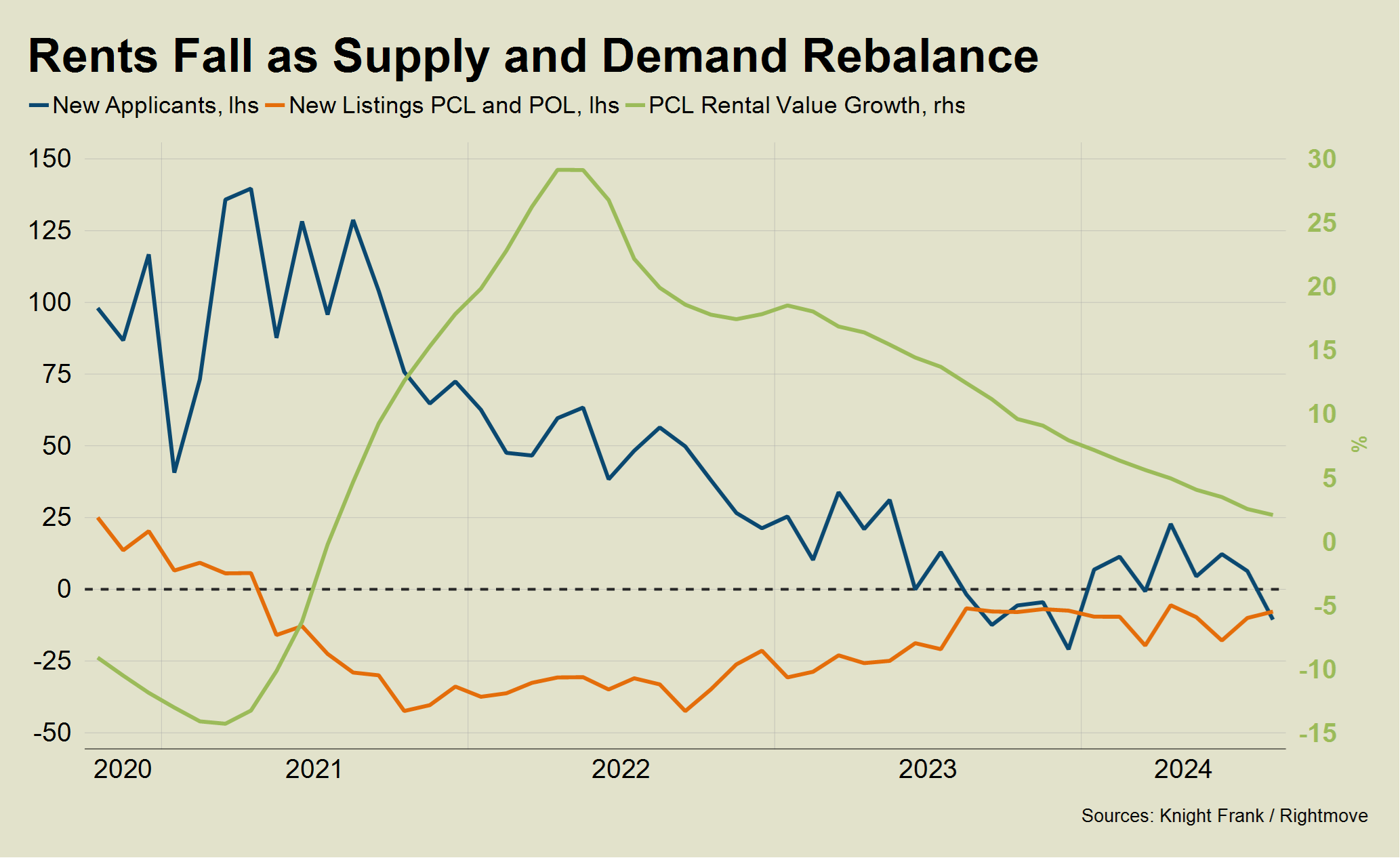Upwards Pressure on Rents May Return if More Landlords Sell
August 2024 PCL lettings index: 221.5
August 2024 POL lettings index: 222.6
3 minutes to read
Rental value growth continued its return to earth in August as supply climbed and demand fell.
Overall, rents rose 2.1% in prime central London (PCL) and 2.2% in prime outer London (POL).
In both cases, it was the lowest figure since the summer of 2021 when the long-let market was flooded with short-let properties during the pandemic.
Supply subsequently fell sharply, in part thanks to landlords selling up during a stamp duty holiday, which meant rents were growing by more than 20% in the early months of 2022 as demand far exceeded supply.
The chart below shows how the market has rebalanced and put downwards pressure on rents.

The number of new listings in August was 8% below the five-year average, Rightmove data shows. That compares to much steeper declines in recent years.
Meanwhile, the number of new prospective tenants was 11% below the five-year average in August, partly due to a decline in overseas students applying to study in the UK.
The number of students accepted from China, which accounted for the largest proportion of overseas students in 2021/22, dropped 6% to 10,950 this year, according to UCAS data.
UK universities may have reached “peak China”, according to comments last year from the head of the Universities and Colleges Admissions Service, for reasons that include visa and tax changes as well as the fact rents have risen in recent years.
“International students coming to the UK are tending to focus on London more closely than other cities” said John Humphris, head of Relocation & Corporate services at Knight Frank. “With fluctuations in applications from China, but notable increases from Turkey and Canada, London remains an evergreen destination in spite of competition from other global education hubs, notably Australia”
Average rents in PCL are 34% higher than they were before the pandemic in February 2020, while the equivalent rise in POL is 29%.
While rents are normalising, there is a risk that upwards price pressure may intensify as more landlords sell due to possible legislative changes.
First, there is speculation that capital gains tax may increase from its current level of 24% in next month’s Budget.
In an indication that more sellers are planning to list their property ahead of possible changes, the number of market valuation appraisals for sale in August was 25% above the five-year average in London, Knight Frank data shows. Conversely, any future rise in supply would increase downwards pressure on prices.
“We are seeing a significant increase in market appraisals and listings from clients who have residential lettings portfolios,” said Andrew Groocock, chief operating officer of Knight Frank’s estate agency business.
“There is a feeling among many owners that they are better off bringing their properties to the market now and perhaps accepting a price that is 5%-10% lower, rather than running the risk of a CGT increase after the Budget.”
Second, there is uncertainty over the revived Renter’s Reform Bill, as we have previously explored. Measures could include making it harder to evict tenants and tighter rules around the green credentials of lettings properties, according to recent press reports.
Our latest forecasts for prime London property markets can be found here, but subject to the Budget and future legislation, our projections for rents may need to rise while our estimates for prices may need to fall.